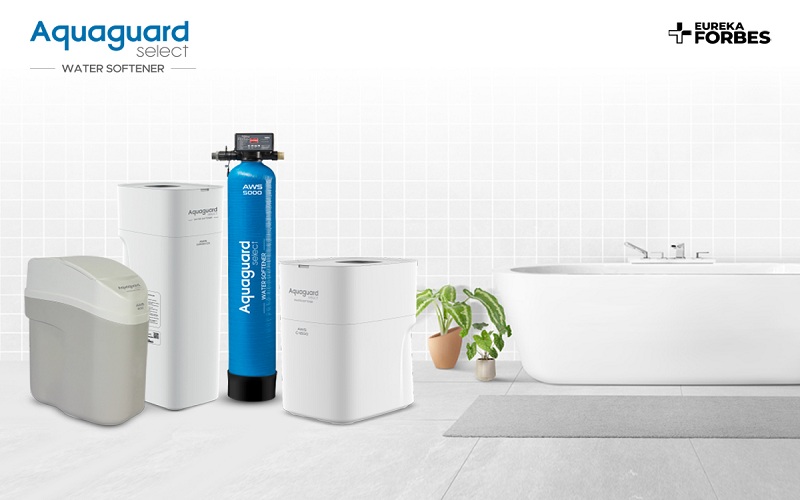Hard water is believed to be a prevalent issue in India, resulting in hair fall, corrosion on appliances, scale formation on tiles, rough skin, stains on ceramics and bathroom fixtures, and faded clothes. Water softeners are devices that treat hard water by removing excess minerals and making it suitable for domestic use.
If you are planning to get a water softener system for your home, here’s a comprehensive guide. Before diving into the buying process, it’s vital to understand what hard water is.
What is Hard Water?
Hard water is high in minerals like magnesium and calcium that are naturally present in the environment. As the water flows through soil and rock it collects these minerals. The degree of hardness in water depends on the concentration of these minerals, and based on this concentration, hard water is classified into different categories, namely, very hard, hard, moderately hard, and soft water. Very hard water has a hardness level of more than 180 mg/l. Meanwhile, hard, moderately hard, and soft water have a hardness level of 120 to 180 mg/l, 60-120 mg/l, and less than 60 mg/l respectively.
How to Find the Right Water Softener?
To find the right water softener for your needs, consider these factors:
1. Flow Rate of Water
Water softening is not an instant process, tap water needs to be in contact with the water softener resin long enough for the process to be completed. To maintain consistent water flow in your home, measure the water flow rate. This prevents declines in water pressure and ensures an uninterrupted flow of water in your household. Moreover, regeneration happens
based on the water flow. Therefore, it’s important to check the flow rate before buying a water softener. Aquaguard Select’s water softener’s recommended flow rate is between 1900 and 2250 LPH.
2. Water Hardness Level
It is crucial to assess the water hardness level before selecting a water softener. Hard water is characterized by elevated levels of calcium and magnesium. Hard water can be classified into– very hard (exceeding 180 mg/l), hard (120-180 mg/l), moderately hard (60-120 mg/l), and soft water (less than 60 mg/l). Understanding water hardness levels makes it easier to make an informed decision.
3. Location of the Water Softener Unit
The location of the water softener unit is a critical consideration to ensure optimal performance and convenience. Ideally, it should be easily accessible for servicing and salt addition. Additionally, to prevent potential damage, it’s essential to shield the unit from direct sunlight, excessive heat, and rain. Furthermore, opt for a location where the risk of water damage is minimal in the event of a leak.
Conclusion
Investing in a water softener can significantly improve your water quality and reduce the negative effects of hard water in your home. By understanding the basics of hard water, and considering factors like size, type, cost, and maintenance in mind, you can make an informed choice when buying a water softener. With the right water softener in place, you can enjoy the benefits of soft, high-quality water every day.
For those planning to purchase a water softener, Aquaguard Select, the best home water filter manufacturer, should be your top choice. Aquaguard Select offers a range of water softeners designed to address hard water issues using various methods. You can choose from Aquaguard Select AWS C-2500 DX Water Softener, Aquaguard Select AWS C-3500 DX Water Softener, and others.

